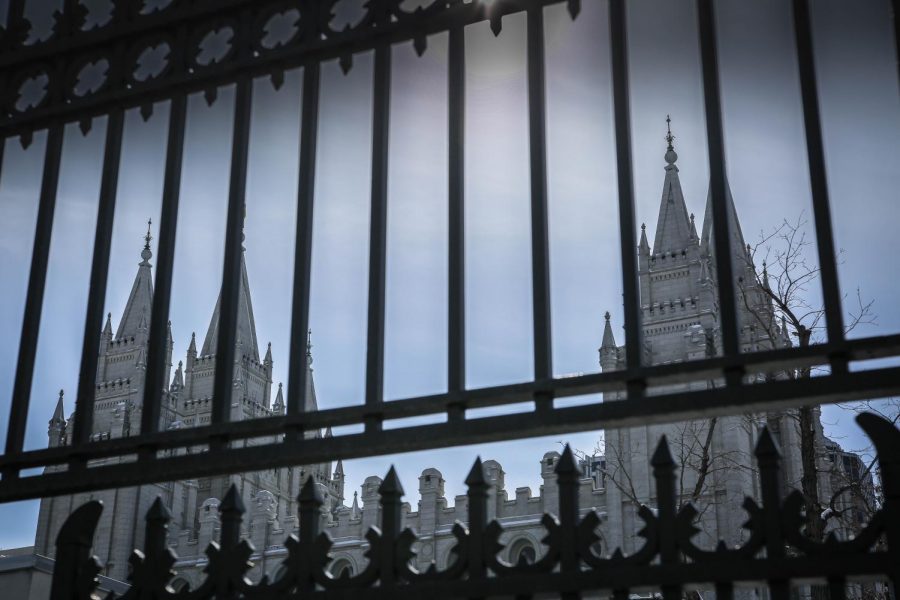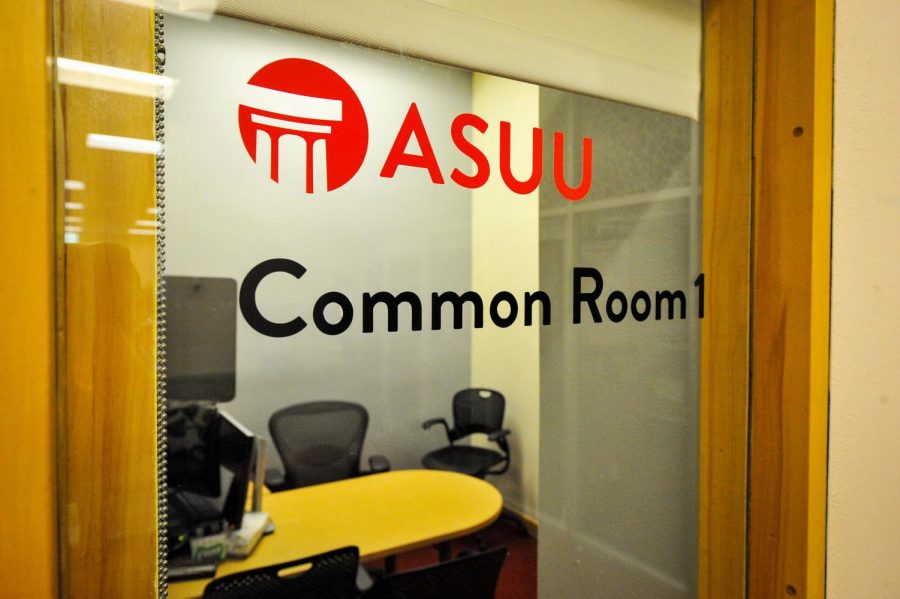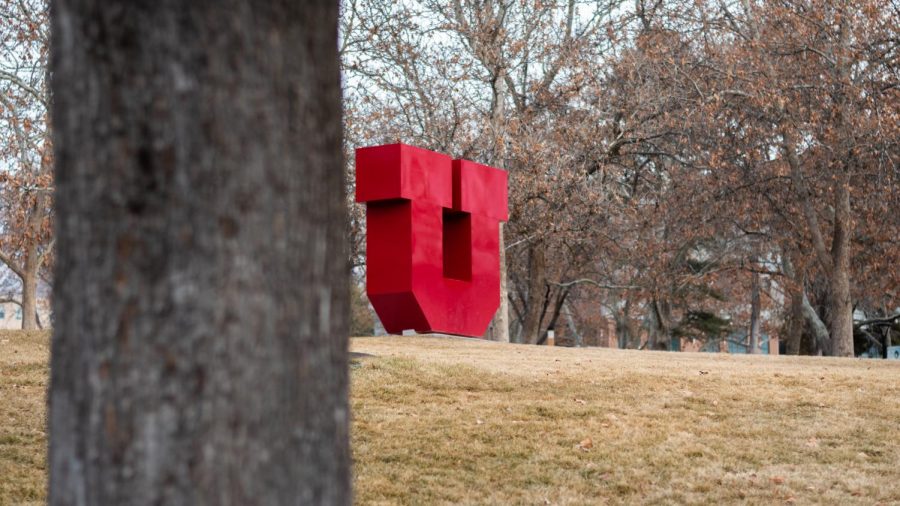Maxfield: Critical thinking is necessary in Utah politics and religion
April 26, 2020
Questions and complaints about Utah’s State Legislature from the public are frequent and welcome. Similar inquiries about Utah’s predominant religion from its members — concerning church leadership and ideologies — are frowned on and are therefore less common.
In Utah, 73% of the population is Christian and approximately 55% are members of The Church of Jesus Christ of Latter-day Saints. When it comes to members questioning church teachings and practices, its leaders have publicly stated that “members are always free to ask such questions and earnestly seek greater understanding.” Yet, the line between welcome questions and those implying that a member is stepping towards apostasy is unclear.
The church defines apostasy as “repeatedly acting in clear, open, and deliberate public opposition to the Church or its faithful leaders.” And, publicly questioning policy or asking hard questions may well lead to a withdrawal of membership; this can be intimidating for members who want to speak out or ask questions.
The intersection of religion and independent thought is both diverse and deeply personal.
We must collectively question religious and political authority equally and not abdicate independent thought to either politics or religion. Instead, we must make room, on both fronts, for hard questions, open conversations and meaningful connections.
Citizens can be participatory and respectful while also questioning the laws and actions being made by local and national government leaders. Members of all faiths should similarly question the policies and doctrines they find alarming because doing so is sometimes necessary and helps bring about positive changes.
“The Unexamined Life Is Not Worth Living” – Socrates
Critical thinking is lacking in America. But, steps are being made to change that. In 2009, former President Barack Obama called for states to reform education and raise standards. Heeding his call, the National Education Association prepared a guide for educators to help shift classrooms away from a focus on reading, writing and arithmetic, and instead focusing on the “Four Cs” identified as crucial skills: communication, creativity, critical thinking and collaboration.
Classroom changes include shifting writing assignments to be more opinion-based — rather than personal narratives — and evidence-based arguments are a part of new language arts standards.
Schools cannot bear the sole responsibility for the development of critical thinking. So, before blaming the public education system, consider how independent, critical thought is embraced in a student’s home during the first almost two decades of life. And, no one can ignore how it operates within the context of religious ideologies. Students often come from homes, schools and religions that tell them what to do, how to act and who to be.
Critical Thinking, Different From Criticism
In 1986, Elder Dallin H. Oaks spoke in detail about criticism, negativity and truth. He suggested ways for church members to employ truth in their conversations. Specifically, he said, “the use of truth should also be constrained by the principle of unity,” and he quoted scriptures about the importance of becoming one and holding each other in high esteem.
He did not ask members to refrain from critically thinking. Indeed, most of his counsel speaks to the importance of the concept.
Notably, he did say, “the counsel to avoid destructive personal criticism does not mean that Latter-day Saints need to be docile or indifferent to defective policies, deficient practices, or wrongful conduct in government or in private organizations in which we have an interest. Our religious philosophy poses no obstacle to constructive criticism of such conditions.”
Giving a green light for members to question the government and private organizations — except their church — is a double standard.
It’s safe to say that most members are heavily invested in the policies, practices and conduct of this private organization. As such, their voiced concerns should be welcome, not warned off.
Speaking Up Matters
Twenty-nine years after Oak’s message on criticism and unity was delivered, the church introduced a policy regarding same-sex couples that caused significant division among members. The announcement came as a crushing blow to many who then voluntarily resigned their membership.
It took nearly four years, but the church eventually rolled back the inflammatory same-sex policy, citing continuing revelation.
And, a 2016 change to the young women’s personal progress workbook was made to disconnect rape from chastity — all because someone called for a change.
See Something, Say Something
Not being docile or indifferent requires us to engage in critical thinking and be willing to act.
This kind of active member will voice concerns when church policies discriminate or cause emotional trauma. They are likely to speak up when religious practices cause injury to entire races, cultures or genders.
Wrongful conduct is not limited to every organization besides this church. Plenty of members, including some leaders, have betrayed people they were tasked to protect.
Blind faith in others simply because you worship together is unsafe and unwise. How many fewer abuses would there be if the church did more to acknowledge those dangerous moral failures and illegal acts?
To increase personal safety, human kindness and unconditional love towards others, more members must overcome their unwillingness or inability to question authority and instead engage in their religion using instinct, critical thought and common sense.
Think Wisely, Ask Questions
I am curious by nature. God created me that way — though it undoubtedly annoyed my parents early on. This religion that I was raised in preaches agency, but limits how members may use it, which I find particularly troubling. Many times, as an active member, I didn’t feel like I was using any agency. Instead, I felt robotic, able to follow only one ‘right’ choice.
Churches often seem to prefer that members quietly follow and avoid pot-stirring. That practice may work just fine if no one is being discriminated against or traumatized. I don’t advocate for or engage in controversy for its own sake, or to simply cause dissent. But, I sincerely believe in advocating for equality and human kindness regardless of the consequences.
Since “questions are a catalyst for learning,” we must engage with our world in a meaningful way and ask questions — even the hard ones — both in our politics and in our religious practices. Though some churches may censor or expel members who ask certain kinds of questions or take a disagreeable stance on policy, a collective voice is difficult to silence.
And, I wholeheartedly agree with physicist Richard Feynman’s poignant words, “I would rather have questions that can’t be answered than answers that can’t be questioned.”








David • Apr 26, 2020 at 5:42 pm
I strongly agree with this message. I am new to the space of free speech and freedom of press. I believe that if we as a community, as individuals are not able to question freely and if we are unable to have the opportunity to think critically on all subjects on this short journey through life then we are collectively as well as blindly giving up our right to freedom of speech and press. Sadly I also believe that we in America are on the door step of that fight, and I for myself have chosen to no longer fallow along blindly but to look for truth of topics myself and try to engage with the conversation of our freedom. China is a communist country and thier citizens are restricted the opportunity of free speech and the likes as well as many other countries. As I said I strongly agree with the author of this article and views that are within.